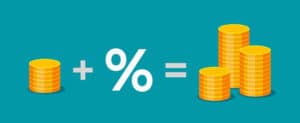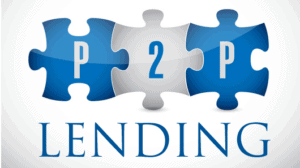What are the Best Short Term Investments in 2021?
Saving your money with a commercial bank’s savings account can be quite demoralizing, especially if you are looking to grow your capital.
Most of these pay a paltry 2% interest at most before tax. If you came up a windfall in tax refunds, retirement package, or a fixed deposit account that matured, the last thing you need is the misappropriation of this cash.
It makes the most sense if you invest this cash in an easily accessible and high-yield but short term plan where you can watch it grow as you figure out the best investment idea.
Remember, that the key here is a short term investment option with maximal returns and low risks. Do such investment options even exist? Yes, there are plenty of high-yield investment ideas that offer attractive short term packages, and a host of others with no investment time limit but allow for easy liquidations. That makes them a great short term investment alternative.
But what should you look for when vetting different investment options to keep and grow your cash for a limited period? And what are some of the most popular options for 2019? Here is everything you need to know about short term investments and our top picks to get you started.
What factors should you consider when vetting short term investment options?
- Consider Return and Risk
Understanding the return and risk is vital to sensible and sound investing. It doesn’t mean you only need to take low risks. It’s all about choosing what you’re comfortable with. Various short-term investments are associated with different levels of risk. For examples, stocks are riskier than bonds. On the other hand, emerging markets are riskier than the already developed market stocks. But you will find that investments associated with high risks tend to offer high returns and vice versa.
- Level of investment diversification
It’s always risky to have all your eggs in the same basket. Most of the short-term investment options are volatile. If you consider an option like peer-to-peer lending, the risk of losing your money can go high without proper diversification. Ensure you diversify in many loans so that when some defaults, others will cover up for the loss. Diversification helps you in spreading your investment risks with the potential of earning higher interests.
- Re-balancing and re-investment options
When it comes to investment, rebalance means ensuring a portfolio gets aligned to its current objectives. Once the portfolio swerves from the original weightings, it’s risk will change too. Rebalancing also involves buying and selling of assets within a given portfolio to retain the weighting.
- Tax-free allowances
Individual Savings Accounts (ISAs), funded investments are an ideal tax-free way to supplement your short-term investments. There is no tax payable on capital income or gains, and you can make withdrawals at any given time.
- Investment risks
Short-term investments are not immune to money market risks. Your funds can go down or up drastically. And looking at an investment product’s past performance is often not enough and can’t be used as a benchmark for future performances. With various short-term investment options, choose what suits you best. Get the basics and seek financial advice from professionals.
What are the pros and cons of short term investment options?
Pros
- Helps you avoid misappropriation and cash misuse
- Most don’t have complicated saving and liquidation processes
- Offers higher returns than the conventional bank savings account
- Viable options to keep the money you intend to use in the near future safe and growing
- The high interests gained here can be used as supplemental income for your household
Cons
- Expose your funds to higher risks compared to long term investments
- Short term capital gains can be punitive
- Long term investments tend to grow steadily
Criteria used to come with the list of best short term investments
- The average annual rate of return on investment
- Investment risks
- Investment provider’s regulation and insurance
- Liquidity
- Tax implication on returns
- Ease of access to the invested funds
Best short-term investments
1. Online Savings Accounts – 2.25% to 3.0% APY
We all need an emergency fund. Traditional banks offer the lowest interest rates, which sometimes can be as low as 0.01%. This is quite demoralizing. Instead, search for the best money market and online savings accounts. An online bank will pay you high-interest rates and charge you lower management and transactional fees. Marcus by Goldman sachs and Barclays online savings are some of the online savings accounts that offer the best rates of returns at 2.25% and 2.20% respectively.
Investing your money with these savings accounts is the smartest financial strategy but keep this in mind when deciding on the best online savings account provider:
- Ensure there are no miscellaneous fees: Some of the miscellaneous fees include inactivity fees, monthly service fees, minimum deposit requirements, and so on. Majority of online banks offer free services. Ensure you look for those options before investing. Here are a few things to keep in mind:
- Automatic deposits should be free: Most banks do require a minimum deposit for this service. You should, therefore, read the requirements before making your savings automatic. Automatic deposit is a great benefit, but you don’t need to pay for it.
- Debit card and ATM access: Some of the advanced online banks provide ATM cards and charge even lower withdrawal fees. Shop for the best account with higher interest rates pieced with favorable features you want.
Pros:
- Mobile friendly
- High-interest rates
- Easy access
- Flexible funds transfers
- Most online accounts are FDIC-insured
Cons:
- Offer limited investment portfolio personalization
- limited investment options
2. Certificates of Deposit – 0.75% to 3% APY depends on the investment period
A certificate of deposit is a form of high-yield investments where you deposit cash for a fixed period with a credit union or bank with the promise of high interest. The CDs work like a promissory note. To earn passive, fixed interest rate, you need to keep the money in the account for a fixed period – ranging from 3 months to five years. And the longer the investment period the higher interest rates. Capital one CD rates, Synchrony Bank CD rates and Barclays CD rates are some of the best online CD rates.
In this case, you’re lending the bank or a credit union your funds in return for interest. The certificates of deposit are what the bank issue you to acquire your cash. The interest you receive is the pay you earn for lending the bank. It’s that simple!
Put the following into consideration when choosing the best CD rate account for your investment:
- The rate offered: It’s not surprising to find a bank giving 0.03% APY while another one might be proposing a 2.50 percent for the same term. Hence, choose a bank that will favor your pockets.
- Pay close attention to short-term CDs: Typically, the longer the investment period, the higher the interest rate. If you don’t wish to commit to a considerably medium-term CD rate with your current banker, considers shopping for better options.
- Consider the withdrawal penalties: Uncertainties in life are the norm. And in most cases, things don’t happen as we always plan them. Remember that CD Rates don’t allow for premature interest or principal amount withdrawals and that if you have an emergency, you should note that your banker will penalize your withdrawal. Some banks might deduct up to 4 months of interest while some may be harsh and slap you with the loss of full-year interest charges. Before choosing a CD, ensure you check the early withdrawal penalties.
Pros:
- Your funds are safe since the Federal Deposit Insurance Corporation securely insures CDs
- You’ll earn decent interest
- They have fewer risks than stocks or bonds
Cons:
- Penalize early withdrawal
- You might miss on other lucrative investment while your funds are tied up
- The CDs don’t factor in inflation rates
3. Short-Term Corporate Bonds – 2% to 4% pa
Investors have become increasingly interested in high earning bonds, with an attempt to find bonds that pay decently than what the government can offer. After the 2008 financial crisis, the Federal Reserve drastically reduced earnings on government’s fixed securities. The move saw most investors switch to the corporate bonds that promise higher returns.
Corporate bonds are generally riskier than the government-backed treasury bonds and have a maturity period of between one and three years. However, investors still consider them less risky in comparison to the highly volatile equity markets.
Factors to consider before choosing short-term corporate bonds:
- Tax implications: You should understand that short term investments are subject to higher capital gains tax when compared to their long term counterparts.
- The industry of operation: Note that these bonds are likely to rise and lose value over time depending on the performance of their issuer and the industry in which they operate.
- Type of investment available: There are two options: ETFs and bond mutual funds. Consider the returns by each, compared to their service fees.
Pros:
- Protects investors against inflation risks
- Potentially high yields
- The value of the fund is not affected by the change in interest rate
Cons:
- The funds are not insured by FDIC
- You stand to lose interest if you dispose of it prematurely
4. Treasury Bills – returns vary from issuer to issuer
If you are a conservative investor and afraid of risks, then the treasury bill certificates may be your ultimate solution. Treasury bills are issued by the federal government and are considered one of the safest investments in modern-day markets.
Treasury bills are often sold at a discount. For example, if the face value is $120 and you pay $100, you earn a discount of $20. Treasury bills have maturity dates ranging from a week to one year after the date of purchase. In some cases, the minimum investment amount is $100, with no maximum investment amount. The risk associated with T-bills ranges from extremely low to non-existent. But as a result, it yields low-interest earnings.
Here is what you should consider before choosing treasury bills:
- Know when to buy: In the United States, the treasury usually auctions T-bills certificates every week. 13 and 26-week treasury bills are auctioned every Monday and a 4-week bill on Tuesdays. One-year or rather 52-week bills get auctioned once a month. Some discounts are usually offered during auction.
- Possibility of reinvesting your Treasury bill proceeds: Reinvesting your T-bills allows you to grow the interest earnings incessantly.
- Consider taxation: T-bill interest is exempt from local and state taxes and this goes a long way in boosting your overall return on investment.
Pros:
- Interest income is exempt from local and state taxes
- Zero risk
- Easily accessible
- Low minimum investment requirement
Cons:
- Offers low returns compared to CDs
- T-bill might inhibit smooth cash flow for individuals who need a steady income
- The interest payments are only offered upon maturity
5. Peer-To-Peer Lending – 10%+ APY
This investment strategy involves lending loan to others through an online platform. Borrowers are loaned on a fixed interest rate with monthly repayments. Individuals and small businesses normally post loan requests in various websites for review to such leading P2P sites as Prosper and Lending Club where the returns on investments average well above 10%.
Although some of these loans may be unsecured, it worth noting that the default rate is very low, about 3%. This, plus the fact that you can diversify your investment effectively push the overall risk downwards. The downside of it is the fact that some peer-to-peer lending sites are relatively illiquid as they lack a secondary market to sell your loan.
Factors to consider before investing in peer-to-peer lending:
- Investment diversification: Peer-to-peer lending carries its fair share of risk in form of loan defaults. You can, however, minimize this risk by investing in a P2P lender that offers to diversify your investment by lending to a plethora of borrowers at a go. This way if there are some defaults, others will make up for the loss.
- Borrower screening: what measure has the P2P lender put in place to prevent the influx of possible defaulters on their site? Do they use the universally available credit ratings or do they have an in-house screening process?
Pros:
- Interests gained will be paid monthly
- Fast and easy online application process
- Diversification minimizes risks
Cons:
- Plagued by the risk of default loans
6. Robo advisors – 3% to 6% return depending on portfolio
Robo advisors are extremely popular with young investments enthusiasts seeking to dip their feet into the money markets. Busy professionals who don’t have enough time to analyze the markets and make productive investment decisions are as well going for the robo advisors. These advisors offer fully automated investment services where you get to have your money working for you while you concentrate on more or equally important aspects of life like studies, family, and business. Charles Schwab intelligent portfolios and Betterment come in handy as some of the best robo advisors.
Here is what you should consider before you invest with a robo advisor:
- Investment risks: How does your preferred robo advisor minimize the unending investment risks rocking the shares and equity markets? How effective are the automated rebalancing and tax loss harvesting techniques employed by these robo investors in protecting your investments from the market volatilities? Check these before choosing the robo investor.
- Management fees: Management and transitional fees charged by the different robo advisors have the biggest impact on your annual return on investments. Confirm these charges before registering and depositing cash with the automated investment platform. You can also consider such advisors as M1 Finance that don’t charge for the first $5,000 invested and imposes a minimal 0.25% fee on any extra amounts.
Pros:
- Stocks offer higher returns compared to other short-investment options
- Charge lower management and transaction fees compared to expert brokerages
- They offer extensive diversification on shares and stocks investments
- High liquidity
- Automate the entire investment process
Cons:
- Stocks don’t offer a guaranteed return
- They are still exposed to such risks as high market volatilities
7. Money market accounts – 2.5% APY
Money Market Accounts, also referred to as Money Market Deposit Accounts (MMDA) are a form of interest-bearing savings account maintained by your banker or credit union. The account, however, differs from your average checking account in a number of ways. First, they pay considerably higher interest rates that saw them earn the nickname ‘savings account on steroids’, require higher minimum initial deposits and operating balance and have the check-writing and debit card for ATM withdrawal benefits. You can try out Investors bank MMDA account or UFB direct with returns of 2.5% and 2.45% respectively.
Factors to consider when choosing a money market account:
- Flexibility: The money market savings were specially designed to encourage more savings and investments. This explains the limited number of withdrawals per month. However, some Money market account will only limit this to cheque withdrawals and issue debit cards that allow for an extended number of withdrawals.
- Minimum operating balance: What is the current minimum initial deposit required by your banker or credit union when opening a money market account? Can you raise this amount and maintain the account above a predetermined minimum operating balance?
Pros:
- Pay higher annual interest on investments
- Are FDIC insured up to $250,000 per account, per deposit-taking institution
- Supports check-writing services
Cons:
- Higher minimum deposit and operating balances
- You cannot withdraw more than six times a month from the account
8. Debt Payoff
Paying off debt and investments sound like antagonizing terms. But they are not. On average, the credit card interest is about 12.77 percent, and sometimes it can get over 20 percent. It means $15,000 in credit card debt will cost you $1,916 in interest per annum.
Don’t forget that interest will keep compounding until you clear the debt. And before you know it, you’ll have paid more money in interest.
Keep the following in mind as you pay your debt:
- Come up with a strategy: Focus on one credit at a time. First, pay down the credit card that has the highest interest, then choose the next highest and pay it off, and so on. It helps in minimizing the interest you pay.
- Pay Extra: The higher you pay each month above the agreed repayment premiums, the less the interest. When you lower the balance, you will save on future interest charges.
Pros:
- You’ll free up cash for other investments
- You save thousands of dollars
- It reprieves you of mental and physical exhaustion
Cons:
- It might hurt your credit score
- It may drain your emergency fund
Bottom line
Short term investments are proven to be a safer way to earn better returns on your finances. But you have to invest in the right channel and make the right decisions. A wrong move, especially when trading on stocks can backfire on you severely. Hence, detailed research and basic understanding of what you’re investing in comes in handy
FAQs
What is a short-term investment?
Can short-term investments be referred to as current assets?
Are shares and stocks long or short-term investments?
What are the best short term investment options?
What is the maximum duration on short-term investments?
How do you choose short term investments?









